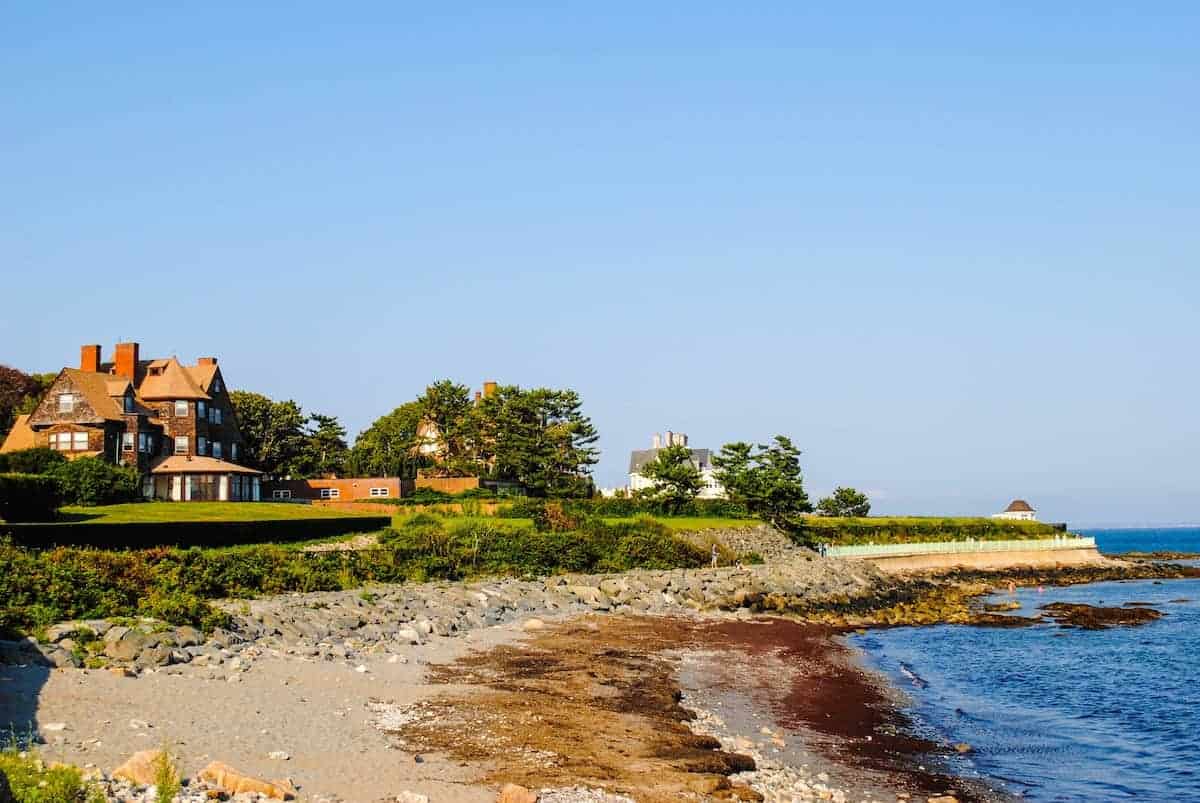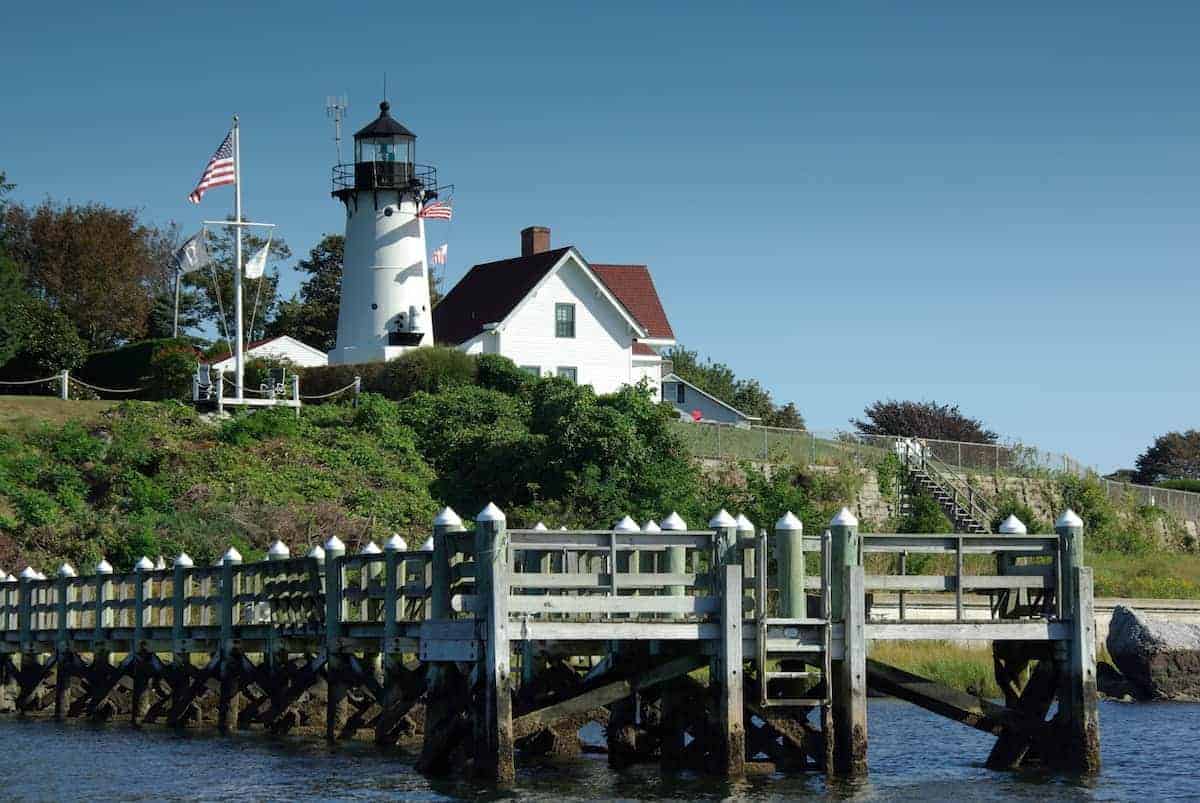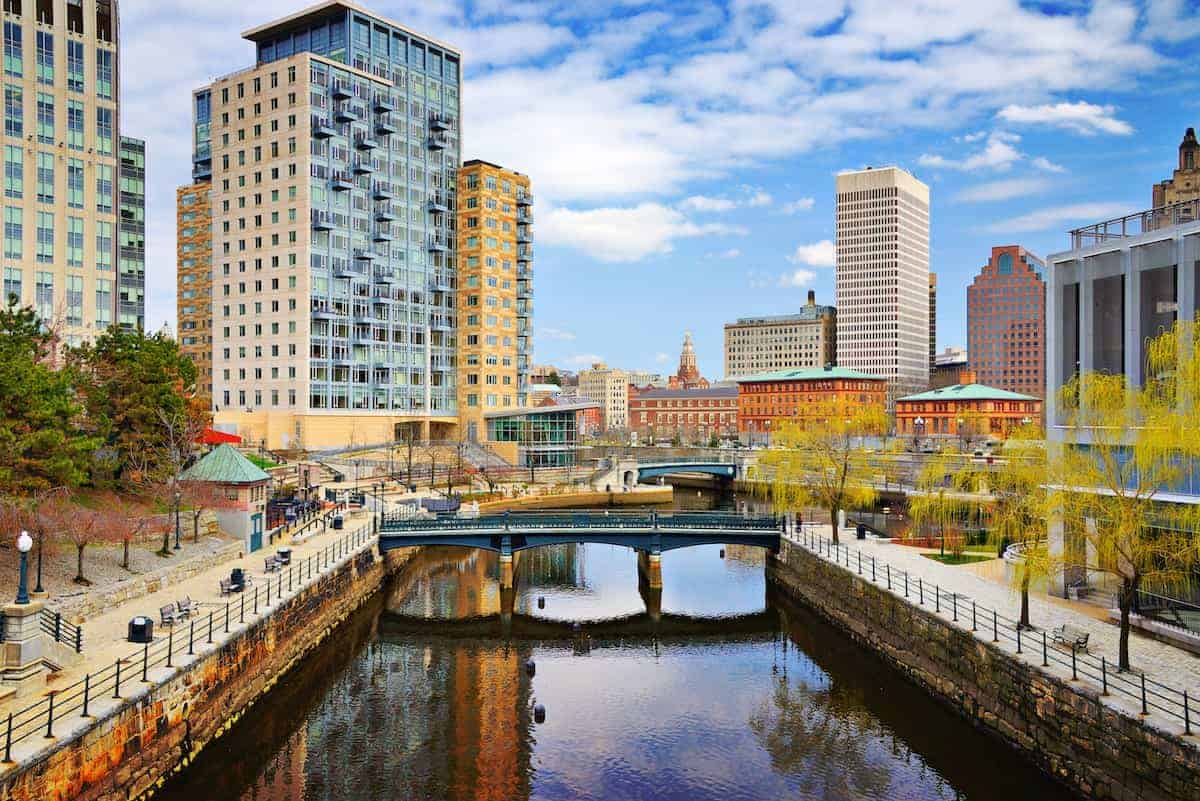12 Pros and Cons of Living in Rhode Island: What to Know

Renting in Rhode Island snapshot
1. Pro: Rhode Island has a rich past
Rhode Island’s historical significance is everywhere you turn, from the cobblestone streets of Providence to the stately mansions of Newport. Whether you’re visiting landmarks like the Providence Athenæum, one of the oldest libraries in the United States, or exploring the Newport Mansions—impressive estates from the Gilded Age—the state is filled with amazing views. With colonial-era buildings and maritime museums scattered across the state, it’s clear that Rhode Island has long played a role in shaping America’s story.

2. Con: It’s expensive to live here
Living in Rhode Island comes with a hefty price tag. From housing to utilities, the cost of living consistently surpasses national averages, making day-to-day living a bit more expensive than you might expect. Real estate prices are especially high, particularly in the coastal towns and cities. The limited land in this small state and the overwhelming demand for scenic properties along the coastline drive property values up. In Providence, for example, the median sale price for a home is around $463,900, while renting a one-bedroom apartment can easily set you back $2,125 per month.
If you’re unsure where to start, using tools like a rent calculator, will help point you in the right direction.
3. Pro: Sun, sand, and saltwater
Rhode Island’s coastline is like a playground, offering miles of sandy shores, saltwater, and scenic views. With beaches like Misquamicut Beach, perfect for sunbathing or surfing, and Block Island’s serene coves ideal for a quiet getaway, there’s something for everyone. Living here means having access to some of the East Coast’s most picturesque beaches within a short drive, so you can spend your weekends relaxing by the water or trying out your favorite water sports.

4. Con: Driving is essential here
While Rhode Island may be small in size, its public transportation system falls short in terms of coverage and convenience. For most residents, a car is a necessity to get around, especially in rural areas where bus routes are infrequent or nonexistent. The Rhode Island Public Transit Authority (RIPTA) does its best to serve the state, but limited bus routes often leave many towns with no public transit options. Cities like Central Falls have a transit score of 36, meaning residents will almost always need to rely on a car to run errands, get to work, or head out for the day.
5. Pro: There’s Creativity in every town
Rhode Island’s towns are steeped in creativity, with art galleries, live music venues, and cultural events happening all year long. Providence, the state’s capital, is home to the prestigious Rhode Island School of Design Museum and is filled with street art, public sculptures, and an eclectic mix of local galleries. Throughout the state, there’s a constant pulse of artistic expression—from community art festivals to theaters showcasing everything from local talent to nationally recognized performers.
6. Con: Prepare for the unpredictable weather
Rhode Island’s weather can change on a dime, making it tough for residents to plan ahead. The state’s coastal location means it can experience sudden shifts in temperature, whether it’s a warm sunny day that turns into an unexpected downpour or a perfectly mild afternoon that quickly turns chilly. Winters bring ice and snow, often creating tricky travel conditions, while summers can feel sweltering one day and cool the next.

7. Pro: Lobster rolls, clam chowder and more
If you’re a seafood lover, Rhode Island is a dream come true. Known for its abundance of fresh seafood, the state offers everything from lobster rolls and clam chowder to fried calamari and fish tacos. Whether you’re grabbing a quick bite at a local shack or dining in one of the state’s upscale restaurants, you’ll never be far from the freshest seafood around. Rhode Island’s coastal waters are home to some of the best catches, which make their way onto the menus of local eateries, often caught just hours before being served.
Find yourself in Narragansett? You don’t want to check out Champlin’s for some of the best seafood you’ve tried.
8. Con: Limited space can cause challenges
As the smallest state in the U.S., Rhode Island’s compact size means limited space—especially when it comes to housing and resources. Whether you’re looking for a home or office space, you’ll find that options are more limited compared to larger states, and that comes with its own set of challenges. The lack of available land in both urban and rural areas contributes to higher property prices, especially in popular areas like Newport and Providence. With little room to expand, some neighborhoods can feel crowded, and urban areas like Providence may experience congestion during peak hours.

9. Pro: Community spirit runs high here
Rhode Island is known for its tight-knit communities, where neighbors look out for one another and local traditions run deep. Annual events like WaterFire in Providence, a stunning display of fire sculptures and music, bring residents together to celebrate the state’s unique culture. In smaller towns like Bristol, you’ll find community events such as parades and festivals. Whether you’re new to the area or a lifelong resident, there’s an undeniable warmth in the way people support each other and come together to celebrate local customs.
10. Con: Tourists and commuters clog roads
While Rhode Island might be small, its roadways are often crowded, especially during tourist season. The combination of tourists flocking to popular destinations like Newport and Providence’s downtown, along with the daily rush hour commuters, can create long delays. Interstate 95, the main highway running through the state, is notorious for being clogged during peak travel times. Limited road infrastructure in urban areas also exacerbates congestion, making getting around in cities like Providence a frustrating experience.

11. Pro: Short drives to larger cities
One of the great advantages of living in Rhode Island is its proximity to other major cities along the East Coast. Just a short drive or train ride away, residents can easily access the cultural, educational, and career opportunities in places like Boston and New York City. Whether it’s catching a Broadway show in New York or visiting world-class museums in Boston, Rhode Island provides residents with easy access to some of the best cultural experiences in the country.
12. Con: Significant property tax
With an average property tax rate of over 1.3% of a property’s assessed value, residents can expect to pay some of the highest taxes in the nation. For homeowners, this means paying a considerable portion of their income toward property taxes every year. While the state offers excellent services and amenities, property taxes can be a tough pill to swallow for those looking to buy a home.
Methodology : The population data is from the United States Census Bureau, walkable cities are from Walk Score, and rental data is from ApartmentGuide.




